- Price Optimization: ML can dynamically adjust pricing based on demand, competition, and other factors to maximize revenue.
5 Best Books To Learn Machine Learning
Here are 5 Best books according to our research mentioned below:
1) Machine Learning For Absolute Beginners
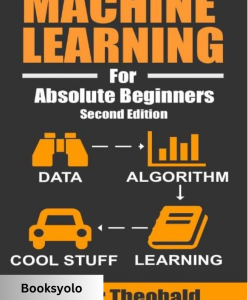
Machine Learning For Absolute Beginners
Machine Learning for Absolute Beginners by Oliver Theobald is an essential resource tailored specifically for those embarking on their journey into the world of machine learning with little to no prior experience.
This book serves as a gentle introduction, designed to demystify the complexities of machine learning and make the subject accessible to everyone, regardless of their technical background. Theobald adopts a beginner-friendly approach.
By minimizing technical jargon and focusing on straightforward explanations, the book provides a solid foundation in machine learning without requiring prior knowledge of programming or data science. This makes it an ideal starting point for absolute beginners.
One of the standout features of the book is its emphasis on practical examples and hands-on exercises. Readers are guided through step-by-step tutorials that demonstrate the application of machine learning techniques to various problems.
This hands-on approach helps solidify theoretical knowledge by providing practical experience in building and implementing models. The book covers essential machine learning concepts, including supervised and unsupervised learning, regression, classification, and clustering, all presented in a way that is easy to grasp.
2) Mathematics For Machine Learning
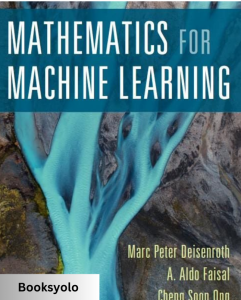
Mathematics for Machine Learning
Mathematics for Machine Learning by Eric Chiang and the team at Google is a foundational text designed to bridge the gap between mathematical theory and machine learning practice.
As machine learning continues to evolve and integrate into various applications, a solid understanding of the underlying mathematics becomes crucial. This book aims to provide readers with the essential mathematical tools and concepts.
The book is structured to cater to both beginners and those with some prior mathematical knowledge. It begins with fundamental concepts and progressively introduces more complex topics, ensuring that readers build a strong foundation in the mathematical principles that underpin machine learning techniques.
3) Machine Learning For Hackers
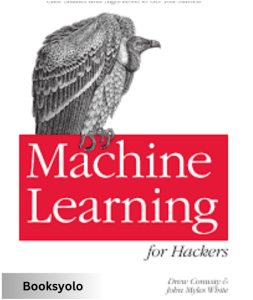
Machine Learning for Hackers
Machine Learning for Hackers by Drew Conway and John Myles White is a practical guide that introduces machine learning concepts through hands-on examples and coding exercises.
Tailored for readers who are familiar with programming and interested in applying machine learning techniques to real-world problems, this book offers a unique perspective by focusing on the intersection of data science and hacking.
The book’s approach is rooted in practical application, making it particularly appealing to those who want to dive directly into building and implementing machine learning models.
One of the core strengths of the book is its use of the R programming language for implementing machine learning algorithms. R is widely used in the data science community for its powerful statistical and graphical capabilities.
Through detailed code examples and explanations, readers learn how to leverage R’s extensive libraries and tools to build and evaluate machine learning models. This hands-on approach ensures that readers gain practical experience in coding and applying machine learning techniques.
4) Hands On Machine Learning
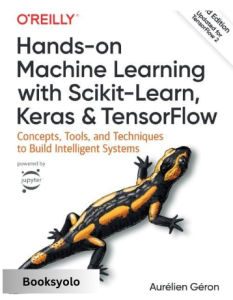
Hands-On Machine Learning
Hands-On Machine Learning with Scikit-Learn, Keras, and TensorFlow” by Aurélien Géron is a comprehensive guide designed to provide a practical introduction to machine learning using some of the most popular and powerful tools available today.
The book is structured to cater to both beginners and those with some experience in machine learning. It begins with foundational concepts and gradually introduces more advanced topics, ensuring that readers build a solid understanding of machine learning principles while gaining practical skills.
One of the key features of the book is its focus on the Scikit-Learn, Keras, and TensorFlow libraries. Scikit-Learn is a well-known library for traditional machine learning algorithms, while Keras and TensorFlow are popular for deep learning applications.
By covering these tools, the book equips readers with the skills to implement a wide range of machine learning models, from simple regression and classification tasks to more complex neural networks and deep learning architectures.
5) Approaching Almost Any Machine
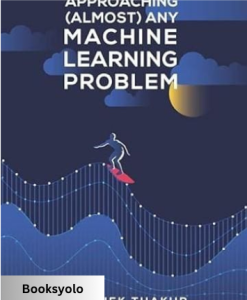
Approaching (Almost) Any Machine Learning Problem
Approaching (Almost) Any Machine Learning Problem” by Abhishek Thakur is a practical and insightful guide aimed at helping data scientists and machine learning practitioners tackle a broad spectrum of machine learning challenges.
The book is structured around a series of real-world machine learning problems, providing a framework for addressing these challenges effectively.
Thakur emphasizes a problem-solving mindset, offering readers practical strategies and methodologies to approach and resolve machine learning issues, regardless of their complexity. The focus is on developing a robust approach to problem-solving rather than just learning specific algorithms or techniques.
Conclusion
Machine learning represents a transformative advancement in technology, offering profound capabilities to analyze data, uncover patterns, and make informed predictions.
As a branch of artificial intelligence, machine learning enables systems to learn from data and improve their performance autonomously, driving innovation across a multitude of industries.
The core strength of machine learning lies in its ability to handle vast amounts of data and derive actionable insights that were previously unattainable.
rom enhancing user experiences with personalized recommendations to enabling advancements in healthcare through predictive diagnostics, machine learning is at the forefront of solving complex problems and making data-driven decisions.
Understanding the theoretical foundations, such as algorithms and mathematical concepts, is essential for developing effective models, but practical experience is equally crucial for applying these techniques to real-world problems.
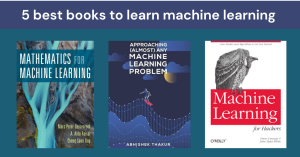

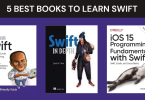
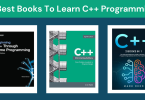
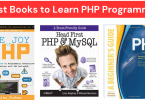
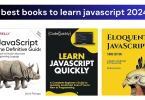

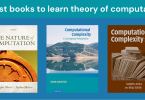
Leave a Comment